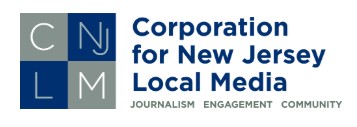Salt Lake Tribune seeks to become a nonprofit ‘community asset,’ a first for a legacy newspaper
Jul 1, 2019

TONY SEMERAD
The Salt Lake Tribune
After years of heavy financial losses, The Salt Lake Tribune is pursuing federal approval to become a nonprofit operation sustained by donations large and small.
Owner Paul Huntsman, who bought Utah’s largest newspaper in 2016, confirmed his lawyers have approached the IRS about changing The Tribune from a privately owned business to a community asset.
The wealthy businessman said he sees the transformation as the best way to sustain the Pulitzer Prize-winning newspaper and maintain its independence.
Though in its early stages, the move by the 148-year-old publication would mark the first attempt by a legacy U.S. daily to switch to nonprofit status and comes as hundreds of print outlets across the country are strained due to plunging advertising revenues.
Reaction to the move was mixed among observers of the U.S. news industry.
In a twofold strategy, attorneys have already sought IRS approval to create an endowed nonprofit foundation to support independent journalism in Utah, with The Tribune as a major recipient of its largesse. The newspaper will also pursue its own nonprofit status as a 501(c)(3), in effect transferring its ownership from Huntsman to a public board. The newspaper currently cannot legally accept tax-deductible donations.
“The Tribune is a vital community asset and should be owned by the community,” said Huntsman, who added that he’d reached that conclusion after nearly a year of studying other news nonprofits and consulting with leading thinkers in the industry. It’s unclear if the shift would change Huntsman’s status as the newspaper’s publisher.
News of the shift emerges less than a year after Huntsman laid off a third of The Tribune's staff, citing an unexpectedly steep dip in ad revenues. Newsroom staffing now stands at about 60 employees, down from 148 in 2011.
It also comes a little more than a year after The Tribune put up a paywall to charge readers for accessing its content online.
Tribune Editor Jennifer Napier-Pearce, hired by Huntsman in August 2016, said the move to a nonprofit is vital in light of the ongoing erosion of The Tribune’s bottom line as readers continue to shift to a wide variety of digital sources for news. Although Tribune online revenues continue to grow as readers sign up as digital subscribers, she noted, they remain a fraction of the paper’s past earnings from print ads.
“We have to survive,” Napier-Pearce said. “Our community would be so much worse off without this publication, let alone independent journalism."
Details are in flux, but Tribune executives are considering a system that would treat print and digital subscriptions as gifts to readers, in exchange for donations — akin to the keepsakes given to donors of public radio.
The move to being nonprofit would also likely force The Tribune’s editorial page to give up its long-standing practice of endorsing specific political candidates.
Finalizing the nonprofit switch could take as long as a year, pending review by the IRS, and is complicated by the 60–year–old joint operating agreement (JOA) between The Tribune and its main competitor, the Deseret News, which is owned by The Church of Jesus Christ of Latter-day Saints.
The Tribune-News JOA, which is set to expire in 2020, governs shared circulation, production, and advertising operations related only to their print editions, not digital ones. Negotiations on the JOA are underway, and Huntsman said he plans to keep print going as long as he can, expressing optimism about printing well past the expiration of the JOA.
“I would love for print to go on in perpetuity,” Huntsman said. “However, market forces are going to dictate that.”
The nonprofit Tribune, Huntsman said, would ultimately be governed by a community board of directors with “a very clear firewall” between directors, foundation donors and the day-to-day work of journalists in its newsroom. He said he envisioned initially serving on the foundation’s board, which would start as a three-member panel but may grow over time.
“Having that firewall is vitally important to us. It always has been and always will be,” he said. “We've seen how publishers can manipulate that process, and it really damages the integrity of the institution, and it's harmful for the community.”
Editor Napier-Pearce will continue to run the newsroom, Huntsman said, and “the role of the board of directors is to make sure the institution has enough resources to do its mission. It’s that straightforward.”
He also promised a transparent approach on donors to the foundation. “I’m not going to be accepting any donations to this foundation from those who want to influence editorial,” the Tribune owner said.
“Not only is that nonnegotiable,” he said, “that just goes to the heart of why you have a newspaper.”
Huntsman said the nonprofit model was “the only way” to restore The Tribune’s financial stability. It continues to lose millions of dollars yearly to a precipitous decline in print advertising revenues and circulation.
“But morally,” he said, “it’s the right thing to do, as well.
“The core of our mission is local news, reporting on the facts and empowering the citizens with the best information to make the right decisions,” Huntsman said.
“That's what newspapers have always provided. And we can't afford as a community to ever let that resource go away.
“Quite frankly, shutting down the newspaper is something that I just was not willing to accept,” Huntsman said. “That's not why I bought the newspaper.”
He said he hoped The Tribune could set an example for other midsize U.S. cities with struggling daily newspapers. “I realize this may not be the right model for all communities,” Huntsman said, “but I believe this is the right one for our community.”
While The Tribune is pursuing a unique path, its executives say they have drawn guidance from other newspapers that are partially supported by nonprofits. That includes The Philadelphia Inquirer, which is now part of the Philadelphia Media Network, owned by the philanthropic Philadelphia Foundation; and Florida’s Tampa Bay Times, owned by the nonprofit Poynter Institute for Media Studies.
Huntsman said he’s also consulted several times with officials at the John S. and James L. Knight Foundation, which recently dedicated $300 million over five years to rebuilding local news operations.
And The Tribune already has embarked on several reporting projects involving nonprofit collaborators.
The paper is partnering with ProPublica, the independent, nonprofit news organization based in New York, to collect and analyze data on hate crimes and incidents of bias. The Tribune has also produced a number of in-depth enterprise stories with the nonprofit Utah Investigative Journalism Project.
It is cooperating with the nonprofit Report for America on funding two new reporter positions for a year, covering San Juan County and women’s issues, respectively. And it has worked with the Downtown Alliance, an arm of the Salt Lake Chamber, on underwriting some arts coverage.
“I’ve been pleasantly surprised at how much money, resources and people are out there in the country right now wanting to support nonprofit journalism,” Huntsman said.
Huntsman predicted that IRS approval of the foundation for independent journalism would go more quickly than switching The Tribune to a nonprofit, because the latter would involve the transfer of private assets to a public entity.
But once the nonprofits are in place, Huntsman and others said the hope is that donors and national foundations devoted to journalism will help The Tribune amass an endowment large enough to generate funds sufficient to sustain its operations.
The foundation for independent journalism in Utah would also back nonprofit reporting projects at other publications, Huntsman said, as well as a series of scholarships aimed at encouraging young people to enter the field of journalism.
Huntsman, who purchased The Tribune at the urging of his father, the late billionaire-philanthropist Jon Huntsman, said he’d been heartened by early signs of community enthusiasm.
That view was echoed by Fraser Nelson, who joined The Tribune staff in March in the new position of vice president of business innovation and will lead the newspaper's community fundraising efforts.
“In those initial conversations with people whose financial and emotional support we will need,” she said, “the response has been universally, ‘Yes. Yes. Yes. We need to find a sustainable business model for the paper, and I want to be a part of supporting that.'"
Nelson said The Tribune’s journalism would be strengthened by being a nonprofit “because it will add more revenue. We will be community supported. This gives us a different way for the public to understand our mission and be supportive of it.”










